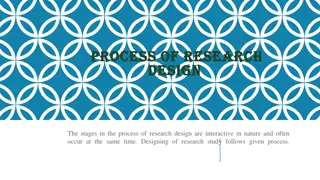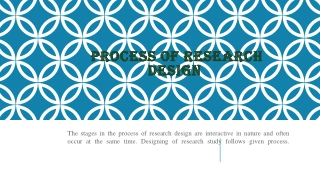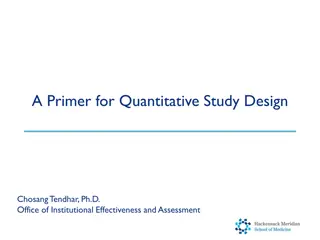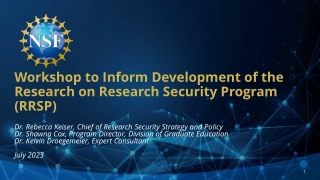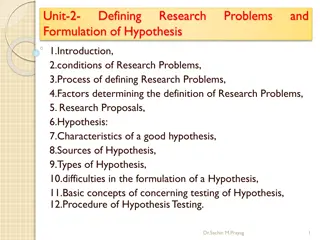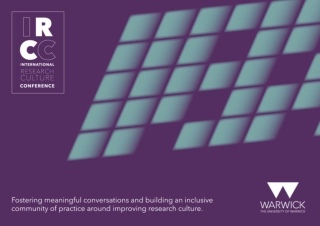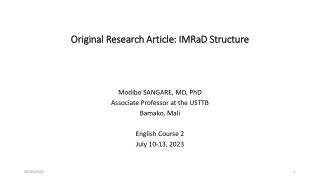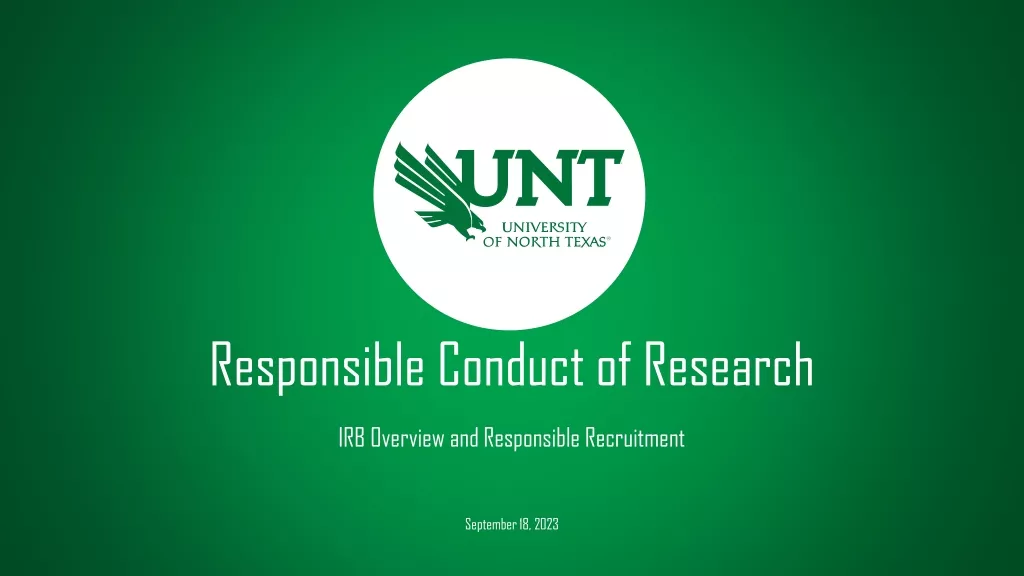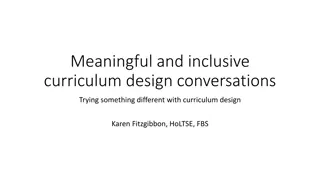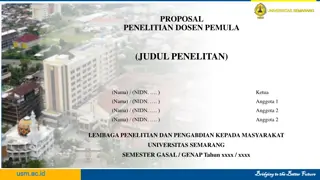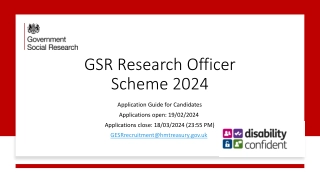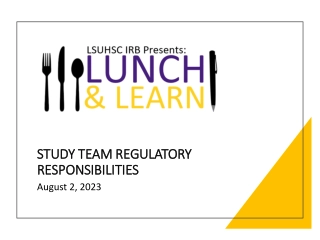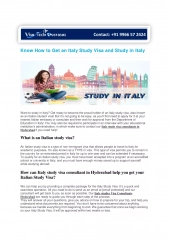Understanding Research Strategies for Effective Study Design
Research strategies guide researchers in planning and executing studies by determining how to answer research questions and implement methodologies. There are various types of research strategies, such as case studies, qualitative interviews, quantitative surveys, and action-oriented research, each suitable for different study goals and circumstances. Researchers need to consider feasibility, ethical implications, and alignment with research questions when selecting a strategy.
Understanding Research Strategies for Effective Study Design
PowerPoint presentation about 'Understanding Research Strategies for Effective Study Design'. This presentation describes the topic on Research strategies guide researchers in planning and executing studies by determining how to answer research questions and implement methodologies. There are various types of research strategies, such as case studies, qualitative interviews, quantitative surveys, and action-oriented research, each suitable for different study goals and circumstances. Researchers need to consider feasibility, ethical implications, and alignment with research questions when selecting a strategy.. Download this presentation absolutely free.
Presentation Transcript
Research Strategies Prof. Dr. Ahmed Ali Mohammed Prof. Dr. Ahmed Ali Mohammed
What are the Research Strategies? The research strategy refers to how you intend to answer the research questions you set, and how you will implement the methodology. It is an overall plan or explanation to conduct the research study which has not yet been proved. A research strategy guides a researcher in planning, implementing and monitoring the study. The research methods tell the researcher how to collect and analyse data, e.g. through interviews, questionnaires, or statisticalmethods. Thus, a research strategy offers high-level guidance, while a research method can be seen as a technique or tool for performing a specific task.
For example, an experiment can be helpful for identifying the cause of some events, but is probably less suitable for exploring an unknown topic or measuring attitudes in a large population. As a number of different research strategies exist, a researcher to embark on a study needs to determine which one of these to choose. The choice depends on the goals and characteristics of the study, and it is possible to identify three main questions for choosing an appropriate strategy: 1. Is it suitable with respect to the research question? Prof. Dr. Ahmed Ali Mohammed
2. Is it feasible, taking into account the resources of the research project? 3. Is it ethical, taking into account its possible effects on people, animals and the environment? The researcher needs to have access to data sources, such as people and documents, which may be difficult to obtain when people are busy, or documents are confidential. The researcher may also need special resources, such as laboratory equipment or computer software. The need for various resources is very much dependent upon the choice of research strategy, and therefore, some strategies may not be feasible in a certain situation.
Furthermore, some research strategies, such as action research, are highly time- consuming, which inappropriate for projects. Samples can small-scale make them research Chemical Testing The meaning of the need to do the experiments in an ethically responsible way is that no one should suffer harm as a consequence of the research study, neither humans, nor animals, nor the environment. Formulas
The four main types of research strategy are: 1. case study. 2. qualitative interviews. 3. quantitative survey. 4. action-oriented research.
Case Study This one focuses on an in-depth investigation of a single case or a small number of cases. In case study research generally, information is sought from different sources such as the observations, survey, interviews and analysisof documents. Data can be qualitative, quantitative or a mix of both. Case study research allows a complex and multifaceted investigation of the issue or problem. The interviews allow access to rich information. They require extensive planning development of the structure, decisions about who to interview and how, whether to conduct individual or group interviews, and how to record and analyse them. concerning the Prof. Dr. Ahmed Ali Mohammed
Interviewees need a wide range of skills, including good social skills, listening skills and communication skills. Interviews are also time-consuming to conduct and they are prone to problems and biases that need to be minimised during the design stage. Prof. Dr. Ahmed Ali Mohammed
Empirical research strategies 1. Experiments An experiment is an empirical study that investigates cause and effect relationships. The purpose of an experiment is to prove or disprove a causal relationship between a factor and an observed outcome. Such a relationship can be formulated as a hypothesis often in the form Factor X causes outcome Y . A hypothesis can be expressed more precisely using the concepts of dependent variables and independent variables. An independent variable corresponds to the cause in a hypothesis, while the dependent variable corresponds to the outcome. A laboratory experiment reduces complexity by controlling, even eliminating, factors that can interfere with the experimental results. Prof. Dr. Ahmed Ali Mohammed
Empirical research strategies 2. Surveys It means to look upon or oversee something. A survey usually has a broad coverage and provides a helicopter view of some area of interest. The breadth of surveys means that they work best for collecting data on narrow and well-defined topics, while they are less suitable for studying complex phenomena in greater depth. May be, the face-to-face survey, in which the researcher directly interacts with the respondents is the best method of survey. A main concern of any survey study is that of sampling. Sampling is about the selection of individuals within a population, e.g. selecting 500 people to interview from a city population of 1,000,000. A strength of surveys as research strategy is that it allows for collecting large amounts of data inexpensively and over a short time span. Prof. Dr. Ahmed Ali Mohammed
Empirical research strategies 3. Case Studies A case study focuses on one instance of a phenomenon to be investigated, and it offers a rich and deep description, and insight of that instance. In contrast with the laboratory experiment, complexity is essential to a successful case study, as it investigates multiple factors, events and relationships that occur in a real-world case. A key decision in any case study is the choice of the instance to be studied. A common criticism of case studies is that their results may only apply to the instance being studied. To address such criticism, a case study researcher needs to clarify the extent to which an instance is representative of a class of similar instances. Prof. Dr. Ahmed Ali Mohammed
Thank you for your listening Thank you for your listening See you See you REMEMBER SAFETY FIRST! Next Next Prof. Dr. Ahmed Ali Mohammed Lecture Lecture


